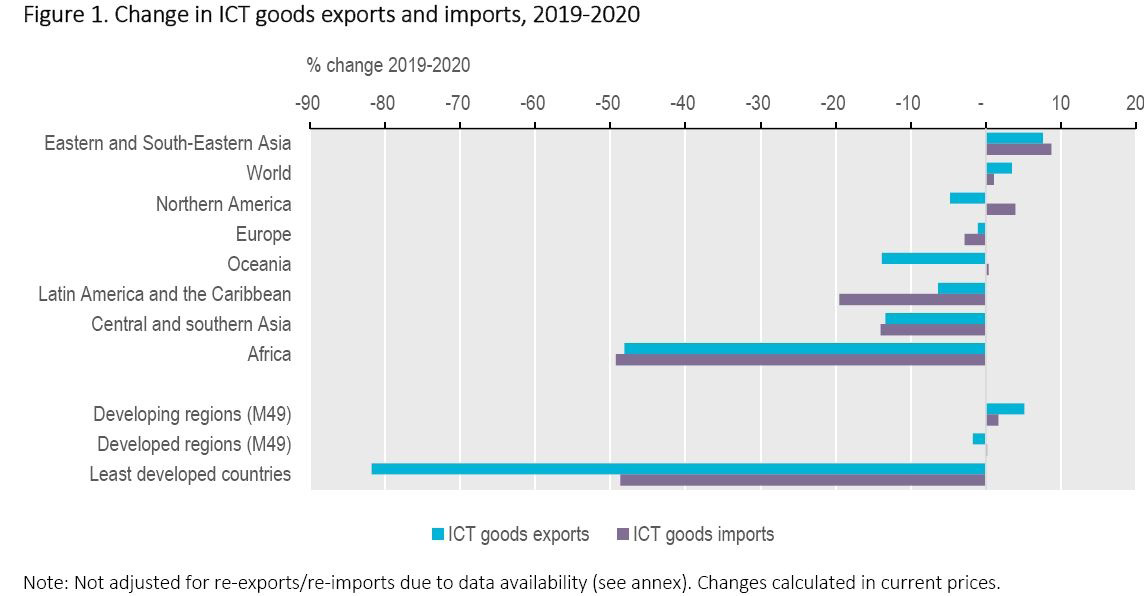Malawi, others at risk of widening digital divide
The United Nations says Malawi and other least developed countries (LDC) are at risk of falling further behind on the use and uptake of digital services as the share of information and communications technology (ICT) imports continues to drop across all regions.
Figures from the United Nations Conference on Trade and Development (Unctad) show that for some time, ICT imports for LCDs and Africa were at 3.5 percent for LCDs and 5.3 percent for Africa.

Unctad says the increases in other regions were larger and the extent to which LCDs and Africa trail other regions in the world is huge.
ICT imports in Asia stood at 28 percent, 16 percent for developed regions and 13 percent for Latin America and the Caribbean.
In a statement, Unctad director of technology and logistics Shamika Sirimanne said the Covid-19 pandemic has made affordable ICT goods imports even more important for countries at early stages of the digital transformation.
These are the same countries that saw the biggest falls in ICT goods imports in 2020.
She said: “In this context, adopting trade facilitation and customs automation measures to smooth import processes will be important to improve access to the equipment needed in the digital economy.”
Globally, imports of ICT goods grew by 1.1 percent, rising $27 billion to almost $2.5 trillion.
The report further said that the pandemic-related acceleration in digitalisation risks further exacerbating digital divides, with LDCs being left further behind.
“It is now more urgent than ever to ensure that those trailing in digital readiness can catch-up,” said Unctad in its technical note on the pandemic’s impact on trade in the digital economy.
Unctad figures show that in 2020, computers and peripheral equipment overtook communication equipment as the second largest component of ICT imports, after electronic components, for the first time since 2013, increasing by three percent while imports of communication and consumer electronic equipment fell by around 10 percent.
In an interview on Tuesday, ICT Association of Malawi president Bram Fudzulani observed that the demand for ICT services in the country is suppressed by high cost of ICT equipment.
He said: “We need to revise taxes and fees levied on smartphone devices and Internet for an ordinary Malawian to afford.
“The numbers accessing ICT are worrying when looking at the largest population with access to Internet and smartphones.”
Through the Malawi Digital Economy Strategy, the Malawi Government targets to increase network access for Internet usage to 80 percent of the population from the current 13.8 percent and increasing device ownership from 51 percent to 80 percent by 2026.
The strategy, which notes that affordability is the largest barrier to uptake of mobile services in Malawi with device costs contributing significantly to this, says to address the barriers, it will phase out the 10 percent excise on data and text package purchases and phase out Malawi Communications Regulatory Authority’s 3.5 percent tax on ICT provider turnover.





